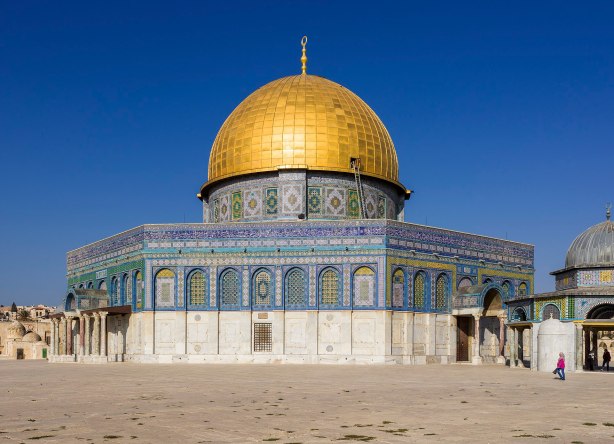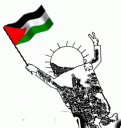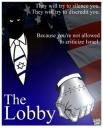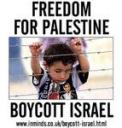“No two historians ever agree on what happened, and the damn thing is they both think they’re telling the truth.” Harry S. Truman.
click on the map above for a better view
This is not going to be easy…
Four months to date of reading and re-reading, exploring history and religious books, following all links pertaining to Arab/Palestinian, Israeli, Jewish and Muslim links that attempt to address the Arab Israeli conflict, produced the following prevailing conclusions and observations.
In summary, the four conclusions that prevailed are:
- History is (really) written by the winner: a fact known in the political infrastructure.
- Truths were deliberately distorted to imply each side’s claim.
- Jewish history states that all Prophets were simply Jewish and therefore justifying their claim to the Holy Land.
- Islamic history states that all Prophets were Muslim (including Abraham, Jacob, the 12 tribes of Israel, David and Solomon, etc.) and therefore justifying their claim to the Holy Land.
A point to the reader: Islam, translated, means submission (to God Almighty, the Creator of the Universe). In the Quran, all Prophets made this claim – that they submitted to God, period. Here are some verses to clarify:
3:67 Abraham was not a Jew nor yet a Christian; but he was true in Faith, and bowed his will to Allah’s (Which is Islam), and he joined not gods with Allah.
Allah is the Arabic word for God. Like Elohim or Adonai in Hebrew or Eli/ Elah in Aramaic. This does not mean that Jews worship a god called Adonai! Interestingly, Elah is also an Arabic word for God. The point is, “Allah” is not a special God that Muslims worship. As a matter of fact Arab Christians refer to God as Allah also. It’s simply the way God is expressed in the language.
2:133 Were ye witnesses when death appeared before Jacob? Behold, he said to his sons: “What will ye worship after me?” They said: “We shall worship Thy Allah and the Allah of thy fathers, of Abraham, Isma’il and Isaac,- the one (True) Allah. To Him we bow (in Islam).”
2:136 Say ye: “We believe in Allah, and the revelation given to us, and to Abraham, Isma’il, Isaac, Jacob, and the Tribes, and that given to Moses and Jesus, and that given to (all) prophets from their Lord: We make no difference between one and another of them: And we bow to Allah (in Islam).”
2:127 And remember Abraham and Isma’il raised the foundations of the House (With this prayer): “Our Lord! Accept (this service) from us: For Thou art the All-Hearing, the All-knowing.
The House here refers to the Kaa’ba – in Mecca (present day Saudi Arabia).
2:132 And this was the legacy that Abraham left to his sons, and so did Jacob; “Oh my sons! Allah hath chosen the Faith for you; then die not except in the Faith of Islam.”
And Solomon, in the Bible, is referred to in a manner unfit of a Prophet:
Song of Solomon 1
(King James Version)
- 1 – The song of songs, which [is] Solomon’s.
- 2 – Let him kiss me with the kisses of his mouth: for thy love [is] better than wine.
- 3 – Because of the savour of thy good ointments thy name [is as] ointment poured forth, therefore do the virgins love thee.
- 4 – Draw me, we will run after thee: the king hath brought me into his chambers: we will be glad and rejoice in thee, we will remember thy love more than wine: the upright love thee.
- 5 – I [am] black, but comely, O ye daughters of Jerusalem, as the tents of Kedar, as the curtains of Solomon.
- 8 – If thou know not, O thou fairest among women, go thy way forth by the footsteps of the flock, and feed thy kids beside the shepherds’ tents.
- 9 – I have compared thee, O my love, to a company of horses in Pharaoh’s chariots.
- 10 – Thy cheeks are comely with rows [of jewels], thy neck with chains [of gold].
- 11 – We will make thee borders of gold with studs of silver.
- 12 – While the king [sitteth] at his table, my spikenard sendeth forth the smell thereof.
- 13 – A bundle of myrrh [is] my wellbeloved unto me; he shall lie all night betwixt my breasts.
- 14 – My beloved [is] unto me [as] a cluster of camphire in the vineyards of Engedi.
- 15 – Behold, thou [art] fair, my love; behold, thou [art] fair; thou [hast] doves’ eyes.
- 16 – Behold, thou [art] fair, my beloved, yea, pleasant: also our bed [is] green.
- 17 – The beams of our house [are] cedar, [and] our rafters of fir.
In the Quran, Solomon and David are mentioned differently and as righteous Prophets:
4:163 We have sent thee inspiration, as We sent it to Noah and the Messengers after him: we sent inspiration to Abraham, Isma’il, Isaac, Jacob and the Tribes, to Jesus, Job, Jonah, Aaron, and Solomon, and to David We gave the Psalms.
21:79 To Solomon We inspired the (right) understanding of the matter: to each (of them) We gave Judgment and Knowledge; it was Our power that made the hills and the birds celebrate Our praises, with David: it was We Who did (all these things).
27:15 We gave (in the past) knowledge to David and Solomon: And they both said: “Praise be to Allah, Who has favoured us above many of his servants who believe!”
The story of the Queen of Shheba – the Sabaeans did “exalt themselves” against God by worshipping the sun and by being convinced “that they ought not to worship God” . Hence, Solomon, being a prophet, is justified in calling upon them, in the name of God, to abandon this blasphemy and to surrender themselves to Him.
27:29 [When the Queen had read Solomon’s letter,] she said: “O you nobles! A truly distinguished letter has been conveyed unto me.
27:30-31 Behold, it is from Solomon, and it says, ‘In the name of God, the Most Gracious, the Dispenser of Grace: [God says:] Exalt not yourselves against Me, but come unto Me in willing surrender!
This introduction was not meant to be a religious debate but a means to show how deep and old the conflict may have been. It’s not just about the land.
A follow-up post is coming soon… the Political history.














[…] we not learned from the Partition of Palestine? When will we stop meddling in other people’s lives? And we call this..spreading […]